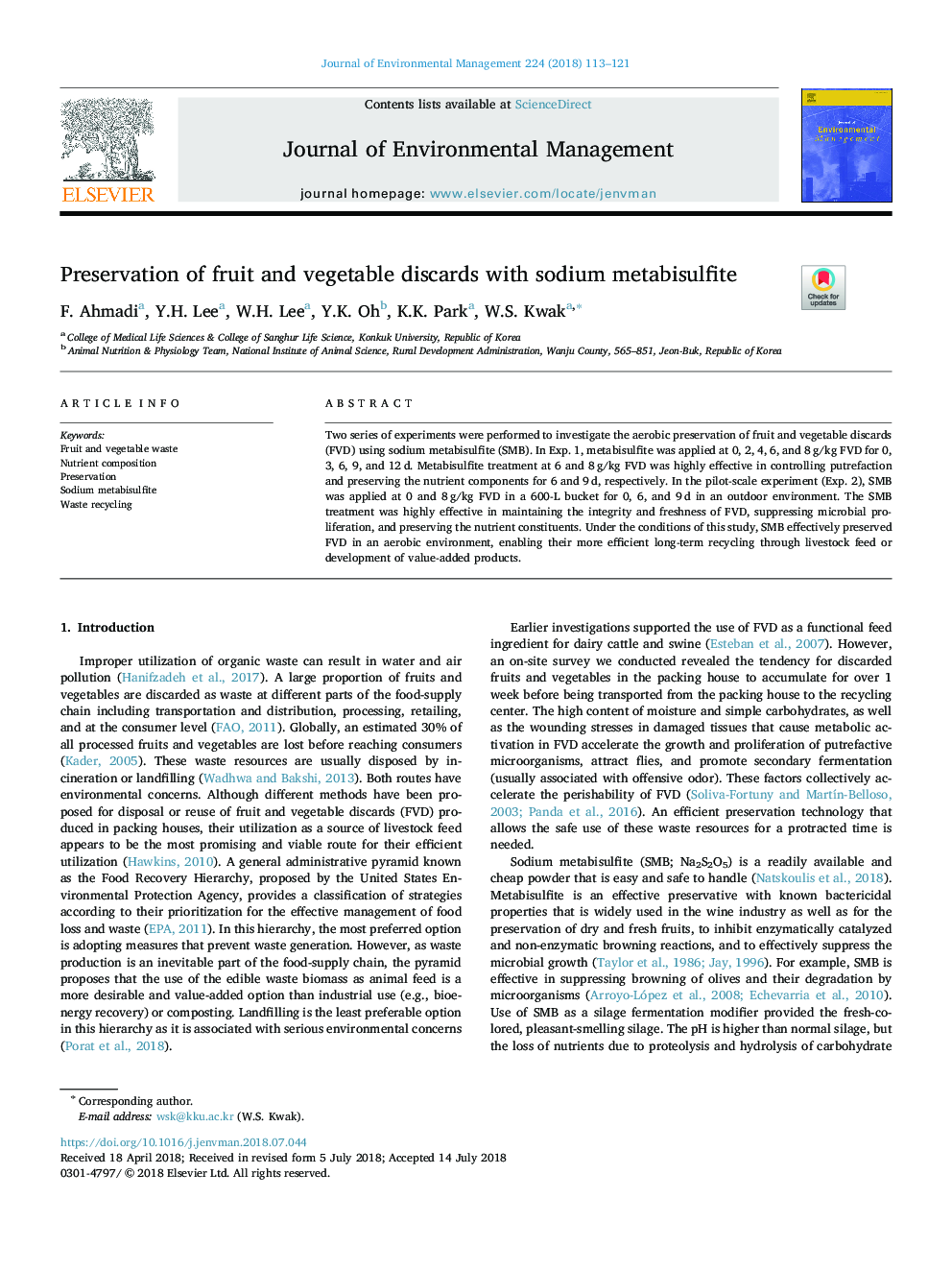| Article ID | Journal | Published Year | Pages | File Type |
|---|---|---|---|---|
| 7475550 | Journal of Environmental Management | 2018 | 9 Pages |
Abstract
Two series of experiments were performed to investigate the aerobic preservation of fruit and vegetable discards (FVD) using sodium metabisulfite (SMB). In Exp. 1, metabisulfite was applied at 0, 2, 4, 6, and 8â¯g/kg FVD for 0, 3, 6, 9, and 12â¯d. Metabisulfite treatment at 6 and 8â¯g/kg FVD was highly effective in controlling putrefaction and preserving the nutrient components for 6 and 9â¯d, respectively. In the pilot-scale experiment (Exp. 2), SMB was applied at 0 and 8â¯g/kg FVD in a 600-L bucket for 0, 6, and 9â¯d in an outdoor environment. The SMB treatment was highly effective in maintaining the integrity and freshness of FVD, suppressing microbial proliferation, and preserving the nutrient constituents. Under the conditions of this study, SMB effectively preserved FVD in an aerobic environment, enabling their more efficient long-term recycling through livestock feed or development of value-added products.
Keywords
Related Topics
Physical Sciences and Engineering
Energy
Renewable Energy, Sustainability and the Environment
Authors
F. Ahmadi, Y.H. Lee, W.H. Lee, Y.K. Oh, K.K. Park, W.S. Kwak,
